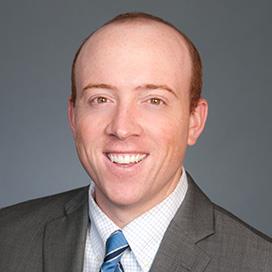Ben Reilly is counsel in Goodwin's Complex Litigation & Dispute Resolution and Financial Services Litigation practices and focuses his practice on a wide array of complex commercial litigation, primarily in the areas of ERISA and securities litigation. He joined the firm in 2015.
Experience
Representative Experience Includes:
- Representing several financial services companies in nationwide ERISA class actions alleging that investment options in employee retirement plans had excessive fees and/or poor performance. These include several actions challenging mutual fund companies' use of their own products as investment options in their own retirement plans;
- Representation of an investment management firm in ERISA class action in the US District Court for the Western District of Missouri, involving multi-week trial in 2018 regarding alleged breaches of fiduciary duty. Trial decision granted judgment for Goodwin’s clients on all counts and claims.
Professional Activities
Ben is a member of the Boston Bar Association.
Credentials
Education
JD2015
Boston College Law School
(cum laude)
BA2008
Bates College
Admissions
Bars
- Massachusetts
- Vermont
- District of Columbia
Recognition & Awards
While in law school, Ben interned for the Honorable Beth Robinson of the Vermont Supreme Court.
While attending law school, Ben served as executive notes editor for the Boston College Environmental Affairs Law Review.
Publications
Ben is an Editor to Goodwin’s ERISA Litigation Update. His speaking engagements and publications include:
- Speaker, “Effects of Litigation Risk on the Investment Menu and Participant Outcomes,” DCIIA Academic Forum, 2023
- Co-Author, “2017 Year In Review: Securities Litigation Against Life Sciences and Health Care Companies,” Goodwin Insights, 2018
- Co-Author, “2016 Year In Review: Securities Litigation Against Life Sciences and Health Care Companies In the First Circuit ,” Goodwin Insights, 2017
- Author, ”Free Riders on the Firestorm: How Shifting the Costs of Wildfire Management to Residents of the Wildland-Urban Interface Will Benefit Our Public Forests,” Boston College Environmental Affairs Law Review, 2015

